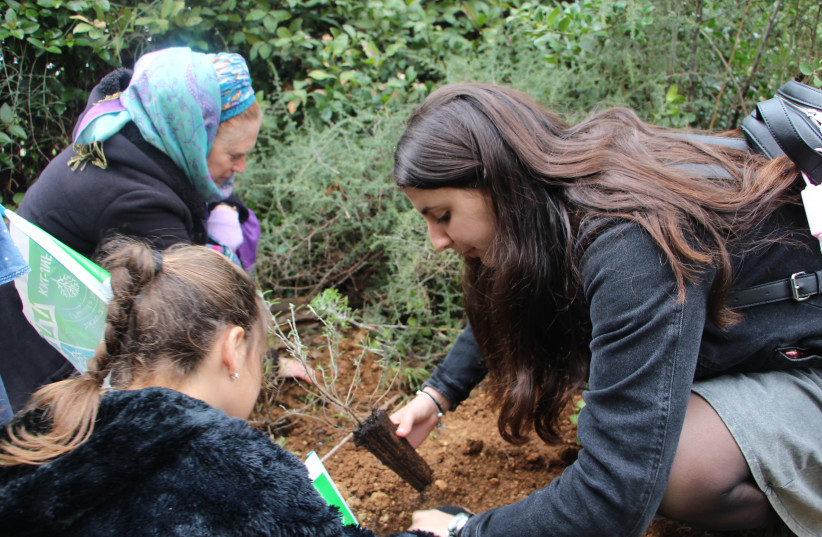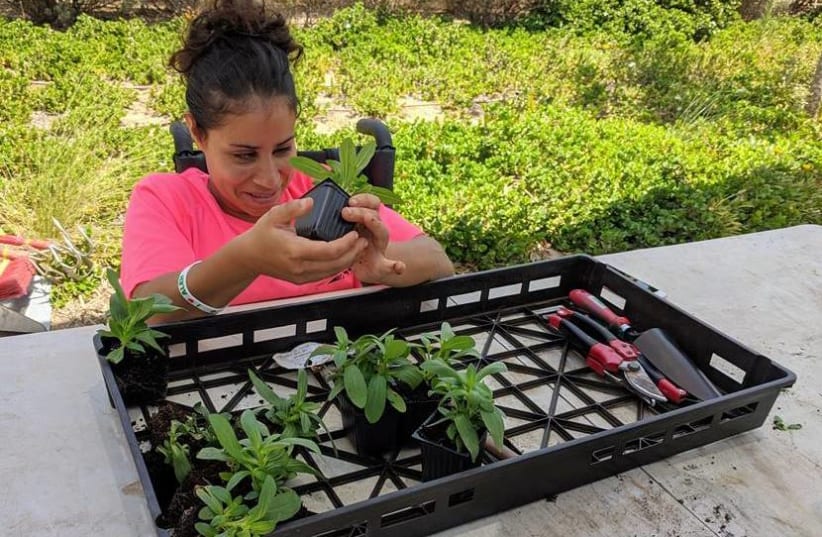We were privileged to spend a sabbatical year in Israel in 1991-1992. Heshie studied at the Hebrew University and undertook numerous other projects. Rookie was a participant in the Senior Educators Program at the Melton Center at Hebrew U.
As a result of the educational projects that were assigned, one of the places we visited was the ulpana in Ofra. Ofra is a growing city in Binyamin, under an hour’s drive from Jerusalem. The place is named after the biblical Ofra, which was located in the domain of the tribe of Benjamin (Joshua 18:23). Established in 1975, it was the first government approved Jewish settlement in the Shomron region. We particularly loved the ulpana, a girls’ high school with a dorm that attracted a diverse group of young women from the local area, as well as some additional students from other parts of Israel.
When we visited the ulpana back then, many aspects stood out. The student body, as mentioned, was diverse, and the school included a program at the time to help absorb and educate young women of Ethiopian descent. The ulpana not only gave them a quality education, but also took care of all of their physical needs, providing them with medical and dental care as well. Our synagogue, the Young Israel of Woodmere, paid the bill for their orthodontic care.
The school offered many varied “avenues of success” for the students, by incorporating not just academic opportunities for those with intellectual talent, but also opportunities in the fine arts, music, drama, sports, chessed, etc., so that all students could experience success, satisfaction and heightened self-esteem, regardless of where their individual talents might lie.
Over the years, the ulpana has also developed, and is the home of a fantastic inclusion program for students with special needs. We also became friends with the executive director of the ulpana, Moshe Batish, and his wife Yehudit.


In 1982, we had sadly lost our baby daughter at the age of three months. In 2000, we lost our two-year-old granddaughter. The road to emotional recovery from these terrible tragedies is a different story, but suffice it to say that with tremendous effort, hope, faith, optimism and the loving support of family and friends, we moved forward with small steps at a time.
We were searching for a project to dedicate in memory of the two babies who did not get to live full lives.
We found what we were looking for at the ulpana. The inclusion program for special needs young people is always looking for ways to give the participants greater self-esteem and feelings of self-worth, as well as to provide ways to contribute to society and find employment in a challenging world. Food preparation is certainly one such area of satisfaction and practical implications for the special needs population.
AVICHAI BRAVERMAN, the new executive director of the Ulpana, and Moshe Batish told us of a new inclusion project at the school. Ulpanat Ofra was working on a greenhouse, a place where the special young women could work together with the regular students and produce living, growing plants that would provide personal growth for those engaged in the planting, and lead to potential careers as well.
Our family has always loved growing things and gardening. In our yard in the US, we had planted shrubs, bushes and even small trees that eventually grew into tall ones. We planted bulbs, perennials and annuals, and enjoyed the beauty and color of our flowers.
Some of our Israeli grandchildren also loved planting flowers and shrubs in the Israeli terrain. So the Chamama project, coupled with the value for the special needs population, really spoke to our hearts. We felt this would be a beautiful memorial project for the baby girls that did not get to plant or grow, and would benefit other girls whose lives were challenging in different ways.
The hakdasha, or dedication, was held at the end of November at the ulpana in Ofra. It was a beautiful and moving evening. Inside the greenhouse, we saw plants that had been planted during the summer with the laws of shmita in mind, as well as plans for a larger area surrounding the greenhouse that would develop the concept of growing things as an aid to social and emotional growth as well as promoting careers over the coming years. A beautiful sign was prepared, naming the greenhouse “Gan HaBanot” in memory of the little girls.
We hope we gave what is called in Hebrew a “chibuk cham”, a warm hug, to the students and staff of the ulpana. They certainly made us feel that the greenhouse and all it represented was a worthy memorial. We were also deeply touched by the participation in the ceremony of some of our family members who live in Israel and a few of our closest friends who have all given us love and support in times of challenge and also in good times over the years. We appreciate the chance to “pay it forward!”
A new oleh, Heshie Billet is rabbi emeritus of the Young Israel of Woodmere and a member of the US President’s Commission for the Preservation of America’s Heritage Abroad.
A new olah, Rookie Billet recently retired from a long career as a Jewish educator, principal, shul rebbetzin,and yoetzet halacha in the US, and hopes to contribute to life in Israel.
